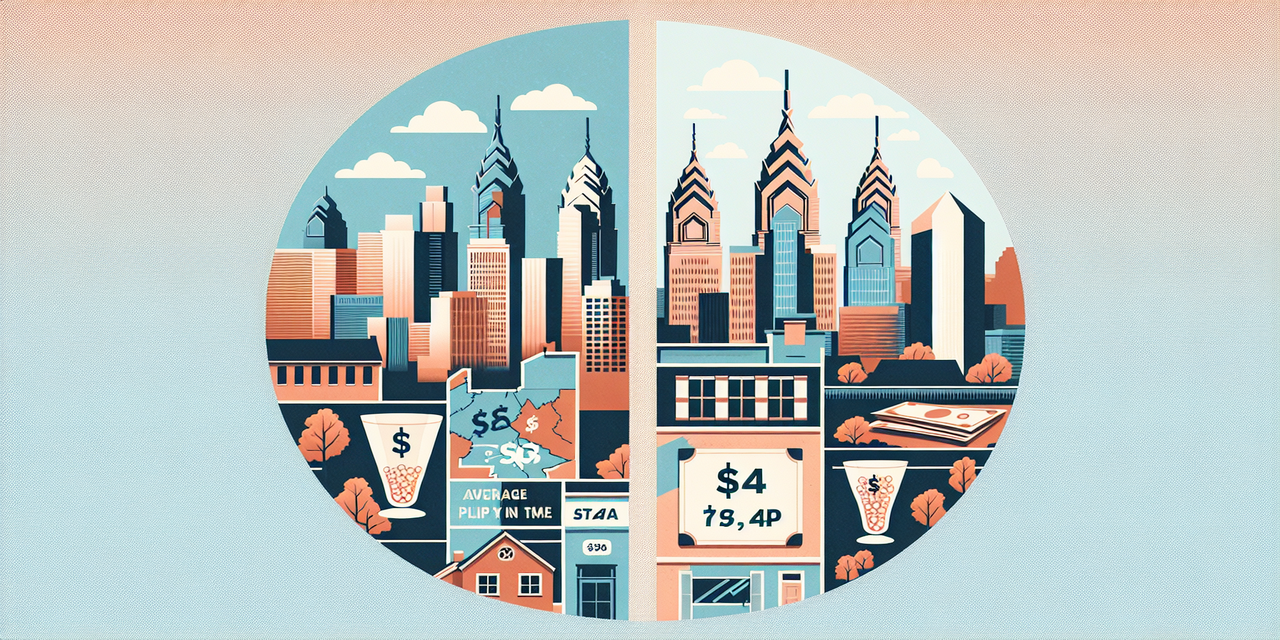Average Bartender Tip Income in Philadelphia vs Hourly Wage: Key Takeaways
- Bartenders in Philadelphia earn an average base hourly wage of $14.06, which is 21% below the national average.
- Tips significantly boost earnings, with combined pay often ranging from $18 to $30 per hour in popular neighborhoods like Center City and Fishtown.
- Higher-end venues such as Four Seasons and Topgolf pay above the national average, with hourly wages exceeding $20.
This article explores how Philadelphia bartenders' earnings from hourly wages compare with their tip income, highlighting key factors influencing their total compensation.
Understanding this balance is essential for both bartenders and employers in the city's hospitality industry.
Employers looking to optimize their hiring practices should consider our guide to hiring a restaurant manager to build a strong team.
1. Hourly Wage for Bartenders in Philadelphia
The average base hourly wage for bartenders working in Philadelphia is approximately $14.06. This figure is notably 21% below the national average for bartenders across the United States.
This difference reflects the local market conditions and Pennsylvania’s wage structures for tipped employees.
Variation in Wages Across Establishments
Depending on the venue, bartenders' hourly pay can fluctuate significantly.
- At more casual chains like Applebee’s, bartenders earn an average hourly wage of roughly $18.54, which is 12% above the national average.
- Entertainment and sports-themed bars like Topgolf offer about $20.20 per hour, around 20% higher than the national average.
- Luxury hotel bars such as Four Seasons provide the highest wages, averaging $21.54 per hour—26% above the national norm.
These numbers indicate how establishment reputation and clientele affect base pay for bartenders in Philadelphia.
For employers seeking to enhance hiring success, checking out our how to hire a bartender resource can provide useful strategies.
2. The Role of Tips in Bartenders’ Income in Philadelphia
Tips are a crucial component of bartender earnings and often make up the majority of their take-home pay.
Pennsylvania law sets the minimum cash wage for tipped workers at $2.83 per hour. However, employers are required to ensure that tips plus wages at least equal the federal minimum wage of $7.25 per hour.
This means that while the hourly wage might appear low, tips play a critical role in meeting legal compensation thresholds and increasing overall income.
Tip Income in High-Traffic Philadelphia Areas
In busy districts like Center City and Fishtown, bartenders can leverage high customer volumes to increase tip income significantly.
Experienced bartenders in these locations often see effective hourly earnings in the range of $18 to $25 during regular shifts. At peak times or special events, their combined hourly rates can even reach $30 or more.
This tempts many bartenders to pursue opportunities in popular and high-end venues where the tipping potential is substantial.
For bartenders interested in leveling up, see our detailed mixologist interview questions for advanced bartending roles.
3. Overall Earnings of Philadelphia Bartenders: Tips vs Hourly Wages
When combining the base wage and tips, average bartender earnings in Philadelphia widely range from $18 to $30 per hour.
This wide range is influenced by factors such as bartenders’ experience, the type of establishment, location, time of day, and day of the week.
Since tip income can be unpredictable, more experienced bartenders working in high-end or busy venues usually achieve higher total compensation compared to entry-level or less busy locations.
Discover how bartenders can maximize earnings with our guide on maximizing bartender income.
How Tips Impact Income Stability
Tips can greatly enhance income but also introduce variability. Bartenders may earn significantly more on weekends or during events but less during slow periods.
A reliable base wage provides a level of income stability, but the potential for higher total earnings through tips is a strong motivator in the hospitality industry.
4. Implications for Bartenders and Employers in Philadelphia
For bartenders, understanding the balance between hourly wage and tip income is essential for financial planning and career choices.
Choosing to work at venues that offer higher base wages or have strong tip earning potential can result in substantially higher earnings.
Employers in Philadelphia should be aware of minimum wage and tip credit laws to remain compliant. Paying competitive base wages can help attract and retain skilled bartenders while ensuring legal obligations are met.
Additionally, managing tip pooling and fair tip distribution are critical for employee satisfaction and legal compliance. Learn more with our resource on tip pooling spreadsheet template.
5. Sources to Learn More About Bartender Wages and Tips in Philadelphia
- U.S. Department of Labor – Fair Labor Standards Act (FLSA): https://www.dol.gov/agencies/whd/flsa
- Pennsylvania Department of Labor & Industry: https://www.dli.pa.gov/Pages/default.aspx
- City of Philadelphia Official Website: https://www.phila.gov
Conclusion: Average Bartender Tip Income in Philadelphia vs Hourly Wage
Philadelphia bartenders earn a base hourly wage below the national average, but tips significantly enhance their total earnings, especially in busy or upscale areas.
Combined wages and tips often propel their hourly income to between $18 and $30, depending on factors like venue and experience.
Understanding this dynamic helps bartenders maximize earnings and enables employers to structure competitive, lawful compensation packages.
Employers should consider consulting our employer branding guide to attract top bartending talent effectively.

.png)

.png)
.jpg)